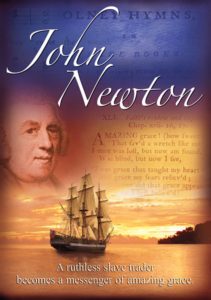These words, of course, come from the beloved hymn, Amazing Grace. Most of us have heard its famous melody, either in church or in a funeral chapel. Or maybe your favorite version comes from Willie Nelson or The Three Tenors or Mahalia Jackson or Judy Collins or Aretha Franklin or Elvis.
Remember back in 2015, when we were grieving the horrific murder of Rev. Clementa Pinckney and his little Wednesday night Bible study group at the Emanuel AME Church in Charleston? And then remember how we took comfort at President Obama’s moving eulogy, wiping tears as our Pastor in Chief broke into song:
Amazing grace! How sweet the sound that saved a wretch like me!
I once was lost but now I’m found; was blind, but now I see!
You also may have heard the story behind the poem. It’s a story that will “preach” (as we preachers like to say), but it’s also a story that has captured the imagination of cinema and Broadway.
John Newton, as the story goes,  was raised in England by a devout mother but in his youth he chose a life of drinking and brawling and then as crew on slaving ships between West Africa and England. Once, while carrying its horrific human cargo, Newton’s ship sank and his near death experience drove him to faith. He eventually became an Anglican priest and wrote the words of this poem for his New Year’s Day sermon in 1773.
was raised in England by a devout mother but in his youth he chose a life of drinking and brawling and then as crew on slaving ships between West Africa and England. Once, while carrying its horrific human cargo, Newton’s ship sank and his near death experience drove him to faith. He eventually became an Anglican priest and wrote the words of this poem for his New Year’s Day sermon in 1773.
The powerful themes of repentance and redemption and grace remain as crucial to us now as they were to John Newton.
America’s original sin of white supremacy and racism still haunts us, hinders us and holds us back from true greatness.